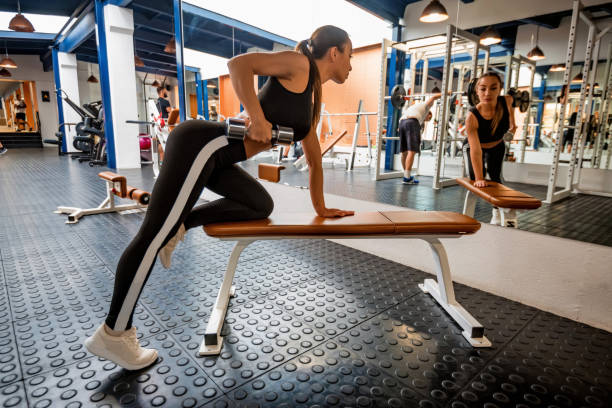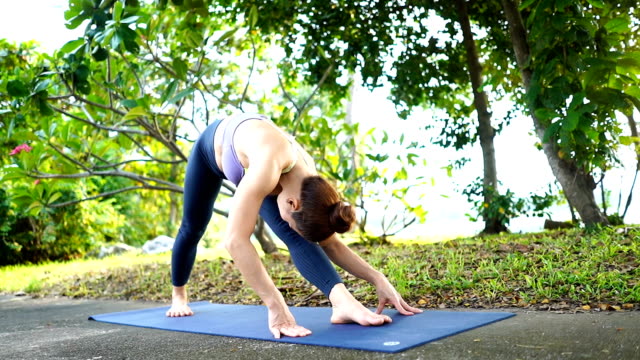How long does it take for a strained deltoid to heal?

Muscles, bones, and tendons all work together to enable us to perform a variety of actions, making the human body an engineering marvel. At the point where one piece of this framework is harmed, it can have broad impacts. In this article, we will zero in on the deltoid muscle and give experience on what amount of time it regularly requires for a stressed deltoid to mend.
Understanding the Deltoid Muscle and How It Works
The deltoid muscle, which is in the upper part of your arm, helps you move your shoulder around. This muscle is fragmented into three particular parts: the front, center, and back. The deltoid muscle has distinct functions for each component. The front, or front, takes into account forward arm development. The middle section makes it easier to move the arm from side to side.
- The back, or back, supports moving the arm in reverse. In that capacity, the deltoid muscle isn’t just essential for development yet in addition to regular undertakings. Subsequently, a strain in this muscle can extensively influence one’s day-to-day practice and exercises.
- When this occurs, it is critical to allow the deltoid adequate time to heal. This includes resting the arm, using intensity and cold treatment, and taking part in designated active recuperation workouts. By permitting the deltoid to recuperate completely prior to getting back to arduous exercises, you forestall the gamble of reinjury. As the muscle fixes itself, slow and controlled fortifying activities will assist with recovering versatility and power.
- It is essential to take the time to comprehend the Deltoid and provide the appropriate healing support. A properly organized recuperation program will make you ready for a more grounded, more adaptable shoulder. By going to vital preventive lengths and focusing on rest, you can help your deltoid to recuperate quicker and all the more effectively. A fully healed deltoid contributes significantly to your overall arm strength and ensures a range of smooth, unrestricted shoulder movements.
Instructions for Recognizing a Stressed Deltoid
Detecting a deltoid strain can end up being a troublesome errand due to its nearby area of different muscles and joints. A few predominant pointers to pay special attention to incorporate encountering uneasiness in the shoulder district, challenges while endeavoring to lift things, and a restricted scope of movement.
- It’s additionally conceivable to notice actual signs, for example, swelling and enlarging at times. These symptoms may indicate a potential strain in the deltoid muscle. Notwithstanding, it’s memorable and fundamental that these side effects can likewise be credited to different wounds or conditions, making an expert clinical assessment vital for a right determination. Following determination, your medical services supplier might propose rest, physiotherapy, or explicit activities, which are urgent for the stressed deltoid to recuperate.
- Playing it safe can limit further harm and guarantee a faster recuperation. After an injury, it is essential to gradually increase physical activity while avoiding excessive use or strain to allow the deltoid to heal properly. Talking with a physiotherapist or athletic mentor can give extra direction during the mending system. For the deltoid to heal properly, they can suggest a series of gentle exercises and stretches. It’s vital to heed their guidance, as attempting to do a lot too early could prompt difficulty in the recuperation cycle.
Factors Influencing the Estimation of a Strained Deltoid’s Healing
Time There are a number of factors to consider when estimating a strained deltoid’s healing time. One of the most basic variables is the seriousness of the actual injury. Strains can go from gentle to serious, and this straightforwardly influences the time expected for recuperation.
- Another huge thought is the age of the person. More youthful bodies will generally recuperate quicker because of their better capacity to burn calories and regenerative abilities. Likewise, an individual’s general wellness status is pivotal. Existing ailments, like diabetes or immune system infections, can dial back the mending system.
- Recovery times are also greatly influenced by one’s level of physical fitness. All the more in great shape, people for the most part experience speedier recuperation because of their bodies’ better flexibility and versatility. In addition, the body can focus its energy on the healing process if it gets enough rest and good nutrition to repair damaged tissues.
- The way to deal with treatment can likewise impact the length of mending. Opportune and fitting treatment techniques can altogether accelerate recuperation, lessen uneasiness, and forestall confusions. In this manner, counseling a medical care proficient right off the bat can improve things significantly, allowing the best opportunity for your deltoid to recuperate quickly and really.
Typical Healing Time For a Strained Deltoid Despite
The fact that the severity of the injury plays a significant role in how long it takes to heal, most estimates suggest that a minor strain of the deltoid can heal in two to three weeks. More extreme strains, then again, could require a couple of months to recuperate completely. These evaluations, nonetheless, ought to be messed with as individual recuperation courses of events can differ significantly contingent upon different variables. Age, overall health, level of physical fitness, and treatment approach are all included. The healing process can be sped up or slowed down by any one of these factors.
- For a customized and precise recuperation course of events, it is ideal to counsel a medical care proficient who can assess your particular condition and guide you in like manner. Such expert direction will empower the deltoid to actually recuperate and decrease chances of repeating wounds. Keep in mind that appropriate rest, adherence to recovery practices, and sufficient nourishment are additionally fundamental for ideal mending.

- Furthermore, keeping a sound way of life, for example, abstaining from smoking or inordinate liquor utilization, can fundamentally improve the body’s innate capacity for the deltoid to mend. Remain patient and confident in your body’s abilities to recuperate while keeping a positive mental standpoint. During this time, keep on taking part in protected, low-influence exercises that won’t further disturb the strain, permitting your deltoid to normally recuperate.
- Taking a holistic approach can help you get back to your normal activities sooner by boosting the body’s natural ability to heal. Your deltoid’s healing can be accelerated by combining physical therapy exercises with stress-relieving methods like yoga or mindfulness meditation. This equilibrium can help with reinforcing the muscle and upgrading adaptability, making ready for a viable recuperation.
Treatment Choices for a Stressed Deltoid
Dealing with a deltoid strain regularly begins with rest, ice application, pressure, and rise, a technique frequently alluded to as the RICE convention. The strain-related swelling and discomfort can be effectively reduced by these measures.
- Non-prescription drugs are frequently used to additionally lighten agony and aggravation. For additional serious strains, a more exhaustive treatment approach may, which could incorporate exercise based recuperation or even careful mediation. An actual specialist can direct you through particular activities that focus on the deltoid muscle, assisting with reestablishing strength and portability over the long haul.
- In uncommon situations where the muscle is seriously torn, a careful fix might be the best game-plan. Be that as it may, the course of treatment enormously relies on the individual and the seriousness of the strain. Continuously look for the guidance of a medical services professional to recognize the most reasonable therapy plan customized to your necessities and conditions. It’s important to remember that patience is the key to healing your strained deltoid. Hurrying through the recuperation cycle can prompt further entanglements or even long-lasting harm.
- Permitting adequate time for your deltoid to mend will improve the probability of a full recuperation. It is fitting to comply with the rules set by your medical care professional to keep away from re-injury. Consistent compliance with the prescribed treatment plan is essential for the deltoid’s healing. With this dedication, the deltoid’s normal function and range of motion will be restored more quickly.
Tips for Speeding Up the Recovery of a Strained Deltoid
Maintaining a healthy diet and drinking plenty of water can greatly speed up the recovery of a strained deltoid. Eating food abundant in proteins, nutrients, and minerals can advance muscle tissue fix, and keeping all around hydrated can help with overseeing irritation.
- Taking part in light, designated practices under the management of an expert can likewise assist with reestablishing the deltoid muscle’s solidarity and adaptability over the long run. Be that as it may, it’s essential to pay attention to your body and not rush the mending system. Pushing too hard could prompt further injuries. A patient attitude, good nutrition, and a combination of rest and activity can all help speed up recovery.
- Appropriate rest is one more crucial part of permitting your deltoid to recuperate, as your body performs basic fix work during times of rest. What’s more, delicate physiotherapy could likewise be gainful, yet consistently look for proficient exhortation first. On account of a stressed deltoid, physiotherapy activities can assist with reestablishing ordinary development and capability while permitting the deltoid to recuperate. Such treatments must, notwithstanding, forever under the direction of a prepared physiotherapist to forestall any further strain or harm.
Preventive Measures to Keep away from Deltoid Strains
In protecting against deltoid strains, having a comprehensive way to deal with real wellness is crucial. Taking part in continuous activity, comprehensive of solidarity molding and adaptability schedules, can help with improving your muscle grit and versatility.
- Likewise, pursuing right postural routines and utilizing legitimate lifting procedures can radically diminish injury helplessness. An imperative methodology to decrease the possibilities of strains is integrating warm-up and chill off practices into your exercise routine. These activities set up your muscles for the impending actual work and continuously lessen the power subsequently, thus limiting the probability of unexpected muscle strain.
- Continuously make sure to regard your body’s signs during exercises to keep away from overexertion, which might actually prompt injury. Offset active work combined with a balanced eating regimen and legitimate hydration, as examined in past segments, likewise assumes a crucial part in keeping up with muscle wellbeing and forestalling wounds like deltoid strains.




One Comment